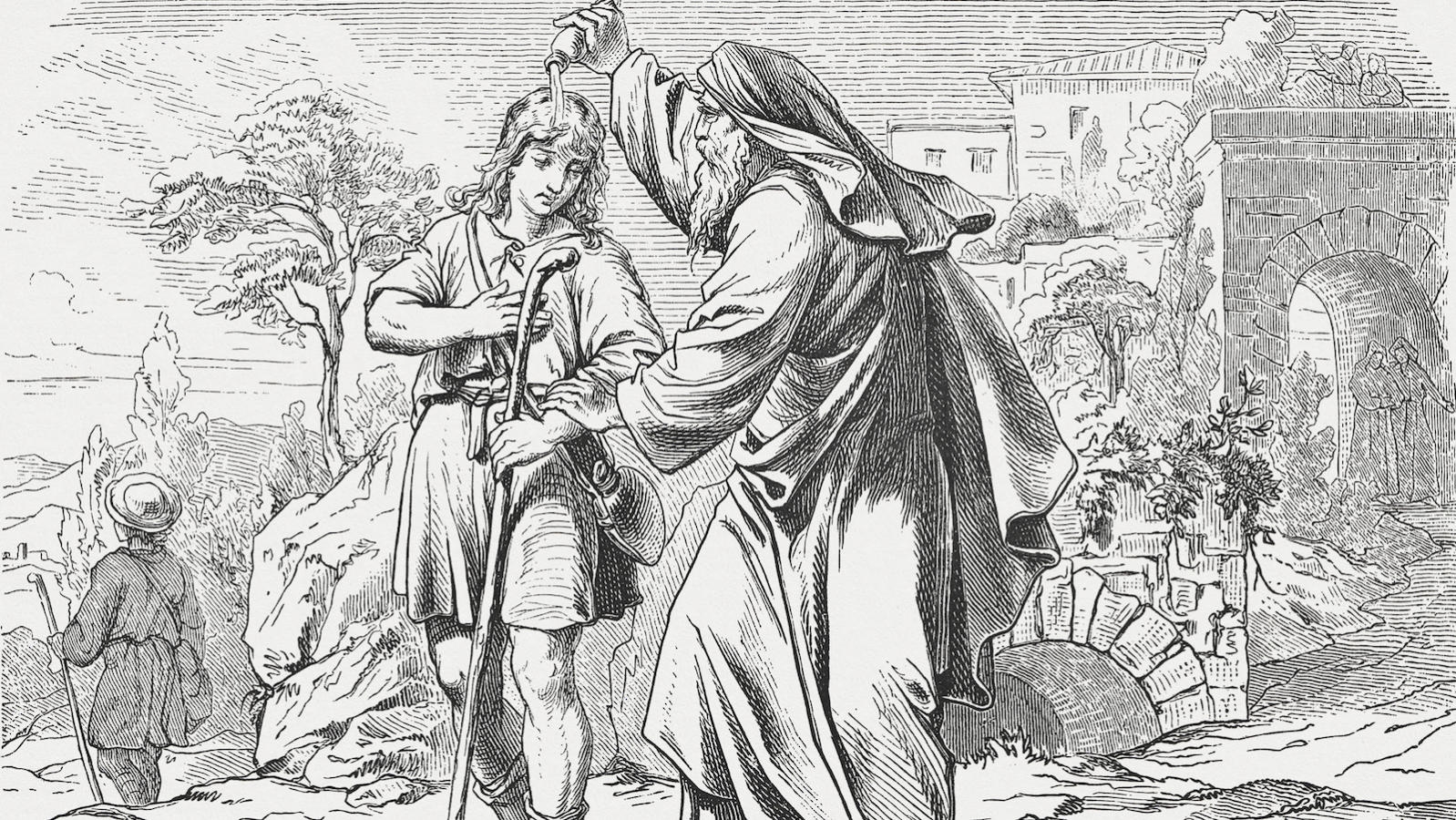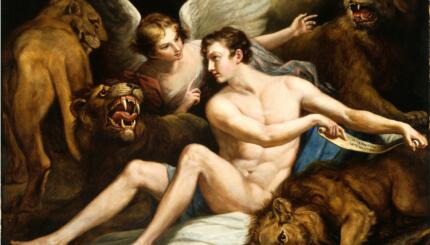Commentary on Parashat Korach, Numbers 16:1-18:32
The selection is from Samuel I, 11:14-12:22.
In the Book of Samuel, when the Israelites demand a king, God grants their request, and directs the prophet Samuel to find a young man named Saul and anoint him as king (Samuel I, chapter 9). The haftarah for Parashat Korah, which tells the continuation of this story, begins with Samuel preparing to travel to the town of Gilgal to perform Saul’s official crowning.
At this ceremony, after the Israelites offer sacrifices and celebrate, Samuel reminds the tribes that this coronation was their idea, not his–“I have listened to your pleas and done everything you asked of me, and set a king over you” (12:1).
Samuel proceeds to reflect on his own leadership, asking the assembled for their judgment. “Testify against me in the presence of the Eternal and in the presence of God’s anointed,” he challenges them. “Have I taken anyone’s ox or anyone’s donkey? Have I maltreated or oppressed anyone? Have I taken a bribe to turn a blind eye to anyone? Tell me, and I will return it!” (12:2-3)

Help us keep Jewish knowledge accessible to millions of people around the world.
Your donation to My Jewish Learning fuels endless journeys of Jewish discovery. With your help, My Jewish Learning can continue to provide nonstop opportunities for learning, connection and growth.
The people assure Samuel that he has committed no wrong.
Then Samuel relates the history of God and the Children of Israel, beginning with Jacob and his family entering Egypt and continuing to his present moment. Samuel praises God’s “victorious acts” (12:7) and bemoans how, when the Israelites forgot God, Sisera and the Philistines defeated Israel (which we read about in the Haftarah for Beshalach).
Samuel explains that God redeemed the Israelites from their enemies after they expressed regret for their idolatrous ways and cried out to Him for help. And yet the Israelites still requested a king to keep them safe–even though God had repeatedly saved them from their enemies.
Samuel cautions the Israelites’ that their newly appointed king is neither a substitute nor a replacement for God. He emphasizes that the people must continue to follow God and obey His commandments if they want themselves and their king to be successful.
Samuel then creates a supernatural event to strengthen his message and credibility. Though it was a time when thunderstorms do not normally occur in the land of Israel, he beseeches God to send thunder and rain, and immediately rain begins to fall. The people are stunned and fearful that they committed a great sin by requesting a king. They cry to Samuel to pray for them and keep them well. Samuel tells them that all will be fine, so long as they obey God.
Connection to Parashat Korach
In the portion that bears his name, Korach and his associates make a bid to abdicate Moses’ power. They are subsequently swallowed up by the earth. The Haftarah for Korach compares this inappropriate bid for power to the request for an Israelite king. In many societies of the time, kings saw themselves as gods or as replacements for deities, and their power was unrestricted. If the Israelite king were to behave in such a fashion, he would be just as bad as Korach.
Throughout the Bible, when Israelite leaders reach out to God for help, God comes to their aid. We see this when Moses is threatened by Korah, and God vanquishes Moses’ enemies. In a similarly supernatural fashion, when Samuel needs God to affirm a decision, God sends a thunderstorm.



